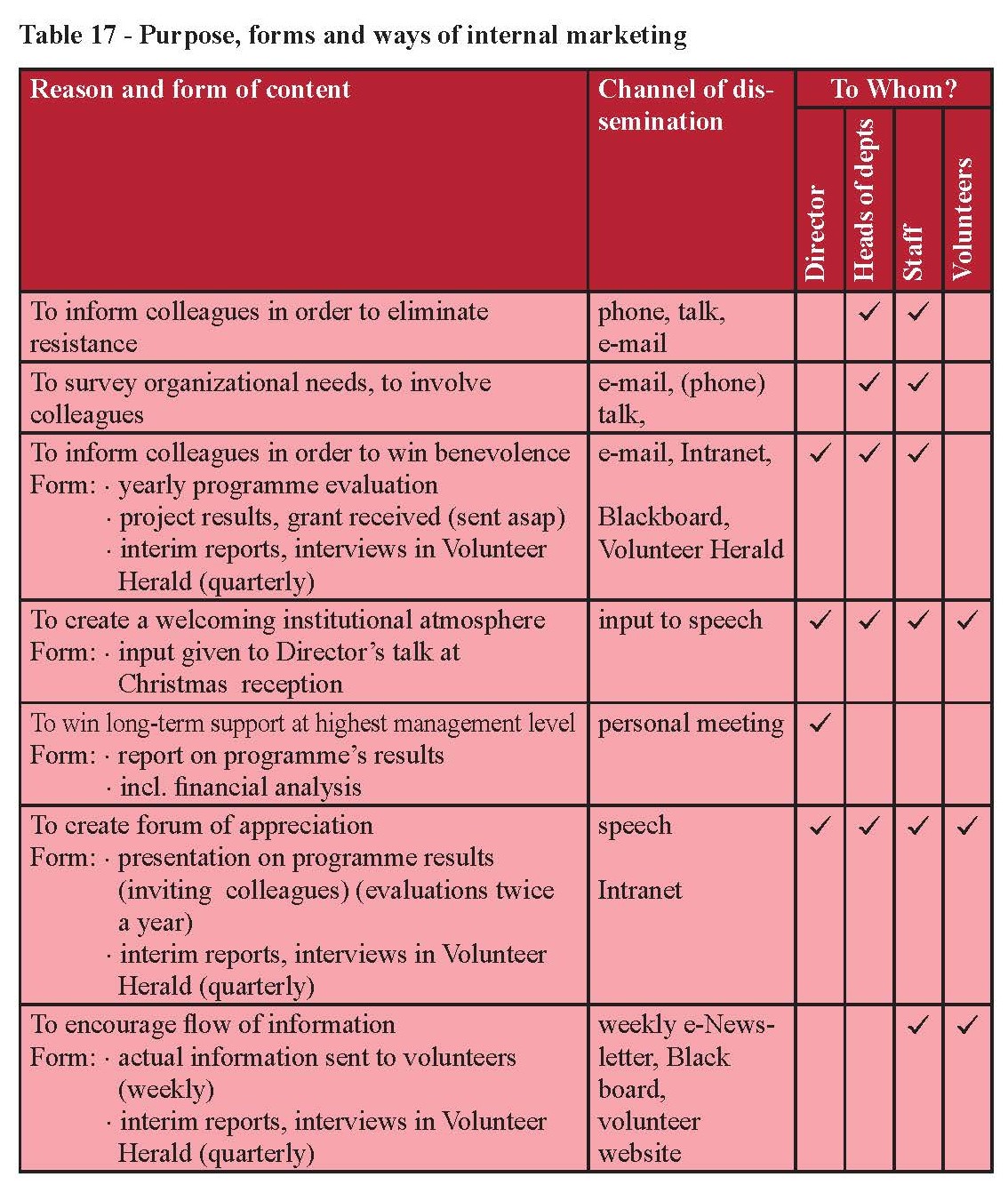Internal marketing is the dissemination of volunteer programme's results within the Museum. It might be easy if you only have three colleagues and tell them the news in a lunch break, but in a bigger organization, especially if there has been any resistance towards the idea of engaging volunteers, internal marketing has a great importance in the development of your organization and in creating and maintaining a welcoming atmosphere to volunteers. However, it can manifest in several forms and it can play several roles in the volunteer programme’s operation. Table 17 summarizes these options based on the experiences of the MFAB's Volunteer Program.
There are two general reasons why internal marketing should be done. One is to strengthen your own belief as a volunteer coordinator. Speaking about the results and representing volunteers might require extra focus from you (i.e. on administrative outcomes). On the other hand it might give you extra self (and programme)-confidence to either argue with colleagues or to experience their positive reaction. The other general reason for internal marketing is to confirm choice and values of volunteers. As unpaid staff their motivation would probably need the most input from other staff members and this is why internal marketing should be one of the coordinator's responsibilities.

In this sense one of the best tools of internal marketing (and also of team building) is a Volunteer Herald – written and edited by volunteers on volunteers, activities and paid staff members. To my great surprise, colleagues download it regularly from the Intranet and read it.
Internal marketing is not only about providing information. It is also about changing information on personal impressions, exchanging data and facts and to see where any further training or explanation might be needed. Why is it so important? To paid colleagues, volunteers will always be volunteers. Since we tend anyway to generalize and simplify issues and wording of problems, it is the coordinator's responsibility to monitor and double check problems in relation to volunteers, before these turn into gossip and create a negative view of the volunteers in general. Have a look at Tip Box 22 for an example of a similar situation and the solution.
Once I heard gossip about the volunteers. There was a problematic situation, when a colleague and a volunteer had a confrontation. I started hearing from several colleagues the same thing: volunteers are problematic and not respectful. In the situation the information volunteer had to face several visitor complaints as the guide was late. When the guide arrived, the volunteer reacted with a highly emotional emphasis what resulted in a similarly emotional and defensive answer. I talked to both and asked them to understand the other one's logic and feelings. They needed mediation.
This situation gave me the idea to invite to a training session all colleagues working in close cooperation with volunteers. This gave us an opportunity to discuss issues like:
• volunteers can commit mistakes just like colleagues
• give instant feedback to the volunteer and report to coordinator in such situations
Internal marketing TIP: As coordinator of volunteers try to speak to colleagues and keep them updated on plans, events, and updated projects. Sometimes you have to take up the role of mediator, find appropriate ways of communication: personal face-to-face discussion, telephone, E!:: training sessions, discussion groups, etc.

